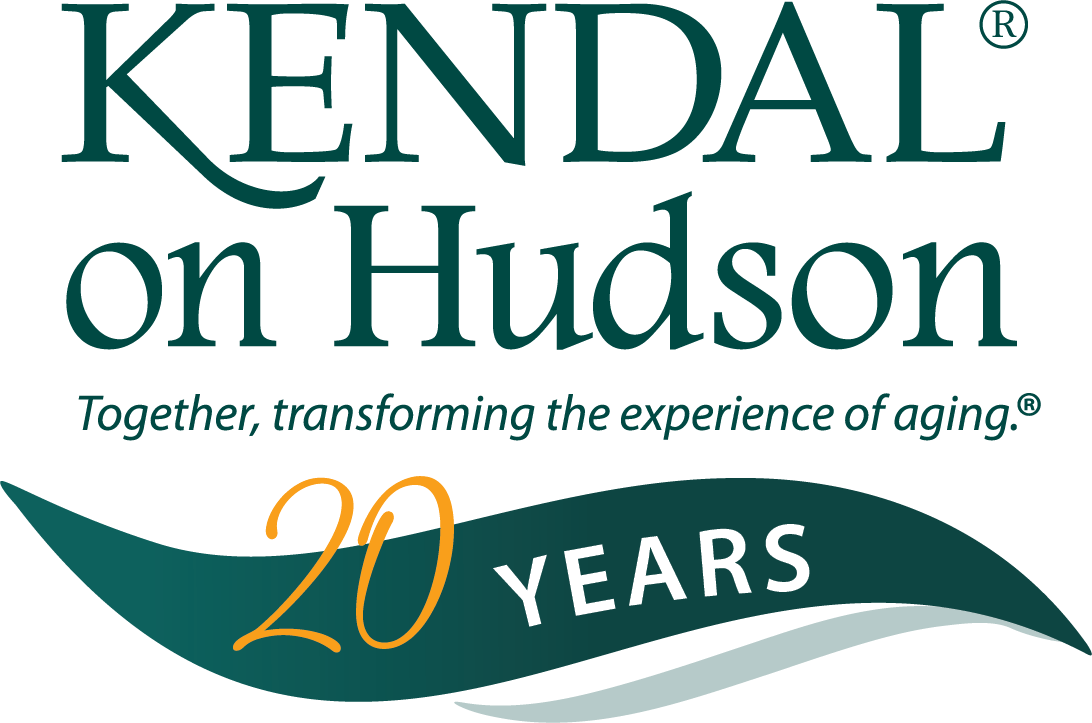June 30, 2022

For many years, your loved one has been active, independent, healthy and energetic. Now, you’re noticing that he or she is starting to slow down. Maybe he is having more and more difficulty climbing the stairs and sometimes even falling. Perhaps she hasn’t been able to get to the grocery store as often, and her pantry is stacked with overly processed, canned and convenience foods instead of fresh ingredients. Or perhaps you’ve noticed that they’ve become withdrawn and don’t get out of the house as much as they used to. Whatever the trigger, you’ve noticed that something has changed significantly in your loved one’s life—and it might be time to move into Assisted Living.
“It can be incredibly difficult to bring up the idea of moving into assisted living, particularly because these communities may have a negative connotation for the older generation,” says Pamela Klapproth, CEO of Kendal on Hudson, a not-for-profit Life Plan Community serving older adults in the Quaker tradition in Sleepy Hollow, NY. “In the past, assisted living and other forms of senior living were institutionalized environments where people went to be ‘put away,’ as it were. It’s important to recognize that today’s assisted living communities are no longer that way. In fact, the best Assisted Living communities, like Kendal on Hudson, are focused on providing a joyful and upscale lifestyle that focuses on wellness, independence and personal fulfillment.”
Pamela says that while assisted living provides the 24-hour support and assistance that many older adults require, it’s more like a concierge service rather than a hospital or clinical approach. “Assisted living provides caring support for the things your loved one needs, which allows them to better do the things they still can do on their own,” she says. “We know that everyone wants to live with dignity and choice, with the ability to shape the course of their future—no matter how old or young we are. Our exceptional Assisted Living community provides an excellent balance for those who need some assistance but still want to live as independently as possible.”
Pamela also says that families and older adults have been quite surprised about the benefits of assisted living. “Many have found that they’re even more independent than ever after moving into Assisted Living,” she says. “That’s because they’re able to spend their time doing the things they enjoy, like being social and partaking in hobbies, instead of struggling to do everything themselves. It’s always incredibly fulfilling for us to see our residents blossom, thrive and enjoy life so much more after choosing Kendal on Hudson as their home.”
But how do you know when your loved one would benefit from moving into Assisted Living? Although there really isn’t a “wrong” time to move into a community like Kendal on Hudson, nor is it really possible to move “too early,” here are some signs to watch for that indicate your loved one could truly improve their quality of life by making a move.
1. Does he or she need help with the activities of daily living?
Tasks like getting dressed, bathing, getting
around and managing medication often become difficult for older adults. You may
notice that there’s a problem if you see your loved one is starting to look
unkempt, or perhaps isn’t bathing,
or he or she is forgetting to take medication on the prescribed schedule. Other
things to watch for are signs like falls or accidents from easily avoidable
things, or if you find yourself doing more and more of these tasks for your
loved one.
2. Is your loved one eating well and getting proper nutrition?
Oftentimes, older adults (especially those who live alone) end up eating poorly because it’s too much work to go to the grocery store and fix a nutritious meal. This can lead to them choosing to skip meals altogether or choosing easy, overly processed convenience foods like takeout or freezer meals. A lot of health issues can stem from poor nutrition, such as diabetes, hypertension and even cognitive issues. When you visit your loved one, check to see if he or she is gaining or losing weight rapidly. What sort of foods are they eating? Take a look in their refrigerator and cupboards to see what’s stocked in there. If there are lots of expired items or a bunch of convenience foods, it’s possible that eating has become a chore instead of a joy.
3. How does the house look?
Taking care of a home can be a pain even for those of us who are young and healthy, so it can become incredibly difficult for older adults. Have you noticed that your formerly neat–freak mother has started to let things go? Check for signs that housekeeping is becoming difficult, like piles of dirty laundry, unwashed dishes, an unkempt yard or a dusty and dirty house. It’s possible that your loved one doesn’t notice the decline, or they simply don’t have the energy or ability to continue with these tasks. Even if they are capable of getting everything done, is it something they really want to continue doing, or would they prefer to spend their time doing enjoyable things?
4. Has there been an increase in accidents?
It’s possible that your loved one’s home is no longer safe because it hasn’t been adapted to their current needs. Has there been an increase in falls and trips to the emergency room? Have you noticed signs of incidents like fires in the kitchen (look for scorched cabinets or items around the stove)? Some accidents can be avoided by removing clutter from walkways and installing non-slip rugs and grab bars, but signs of larger problems could mean that assisted living would be a good option for your loved one.
5. Is your loved one still able to drive?
Be sure to check your loved one’s car the next time you’re near it. Has there been an increase in dents and dings? Or have they had an increase in fender benders that they can’t really explain? While no one likes to have their freedom taken away, it’s possible that driving simply is no longer safe for your loved one—or those on the road. Assisted living can help with this issue, because transportation is provided for errands and appointments, as well as for any activities that the community is holding. This allows individuals to live independently, even if they can no longer drive themselves.
6. Is he or she having difficulty with money?
Have you noticed piles of unpaid bills growing on your loved one’s counter? Is money disappearing from their bank accounts for inexplicable reasons, or because your loved one is buying things that aren’t needed? Older adults can find it difficult to stay on top of bills, so watch for things like “final notice” letters or utility shut offs. Older adults are also more susceptible to scammers, so if you’ve noticed an increase in telemarketers, or if your loved one has been donating a lot of money to “charities,” this can be a significant problem. While assisted living communities aren’t responsible for managing the finances of their residents, they do take a lot of the financial work off your loved one’s shoulders, meaning fewer difficulties.
7. Is your loved one isolated or lonely?
Even if your loved one is still able to do all
the things we’ve listed above, have you noticed that he or she is becoming more
withdrawn, isolated and lonely? Most older adults enjoy spending their time
doing activities and hobbies they love, as well as socializing with friends and
family. But age, health and other factors can make it increasingly difficult to
get out and do those things. This can lead to your loved one becoming more
homebound and isolated, which can result in stdress,
anxiety and depression—all of which can cause a decline in health. If your
loved one is no longer interested or able to do the things they love, it’s
likely a sign that moving to assisted living would be beneficial for their
health, well-being and happiness.
If you’ve noticed any of these seven signs, it may be time to start easing your loved one into a conversation about assisted living. Start slowly, and be sure to lead with the benefits and positive things about assisted living. You will more than likely need to have an ongoing conversation with your loved one, but soon he or she will start warming to the idea—and even become excited about the possibilities.
Together, Transforming the Experience of Aging.®
Founded on Quaker principles and guided by our values and practices, Kendal on Hudson provides a vibrant, active and social senior lifestyle on our 25-acre campus next to the historic Hudson River. As the only LifePlan community in Westchester County, we offer five levels of service for our residents: Independent Living, Assisted Living, Memory Support, Skilled Nursing and Rehabilitation Services.
Kendal on Hudson is a not-for-profit 501(c)(3) organization led by a volunteer Board of Directors. Kendal on Hudson is an affiliate of The Kendal Corporation, a system of communities and services for older people based in Kennett Square, PA. We support diversity, inclusiveness, and independence and support the values and practices of Kendal by remaining focused on healthy aging. Located in Sleepy Hollow, New York, just 35 miles from New York City, we offer a vibrant lifestyle, cultural programs, continued learning and health care for life.
For more information, please call 866-KENDALNY.
